At the regular Government press conference in July 2025, answering reporters' questions regarding the proposed amendments to the Draft Law on Higher Education on accreditation of training programs, Mr. Huynh Van Chuong, Director of the Department of Quality Management ( Ministry of Education and Training ) said that Chapter VI of the Law (from Article 32 to Article 36) stipulates the assurance and accreditation of higher education quality. The draft maintains the mandatory accreditation requirements for higher education institutions, while at the same time, adding regulations on mandatory accreditation for training programs in specific fields such as pedagogy, medicine and law.
"For the remaining sectors and fields, the Law does not abolish mandatory inspection but stipulates according to the list issued by the Minister of Education and Training, based on the level of risk and requirements to protect public interests," said Mr. Chuong.
According to the leader of the Department of Quality Management, this is a necessary adjustment to decentralize to the management agency enough data and authority to flexibly determine the scope of inspection while still ensuring quality, objectivity and accountability throughout the system.
The draft does not abolish mandatory inspection, but re-establishes the scope of application in a flexible and controlled manner. This aims at an effective inspection system, in line with international practices and standards.
In the United States, law, medical, and teaching programs are subject to mandatory accreditation through professional organizations. In Europe, the ESG guidelines (2015) also allow for flexibility in accreditation, but require high accountability, especially for fields that affect social security.
A notable new point in the Draft is the regulation on the internal quality assurance system (IQA - Internal Quality Assurance) at higher education institutions.
Mr. Huynh Van Chuong emphasized that IQA is a prerequisite in the context where schools are given autonomy and the State plays a supervisory role.
"The internal quality assurance system is a tool for schools to self-monitor, detect problems and continuously improve. This is a mandatory condition if they want to truly improve quality and implement responsible autonomy," said the Director of the Department of Information Quality Management.
The decision to assign the Ministry of Education and Training the right to determine the list of mandatory accreditation programs also stems from the fact that the Ministry has many information channels such as reports, surveys, inspections, checks, etc. to comprehensively assess the training quality in each field. This approach helps to allocate accreditation resources reasonably, avoid formalities and waste, and at the same time accurately reflect reality.
This model is also being applied by many regional accreditation organizations, such as AUN-QA of Southeast Asia, and is suitable for the requirements of integration and recognition of degrees between countries.
Regarding the application of artificial intelligence (AI) in assessing the results of accreditation and evaluating reports of higher education institutions, Mr. Huynh Van Chuong said that currently, the Ministry of Education and Training has issued Circular No. 13 on monitoring and evaluating the quality of educational quality accreditation centers.
This clearly shows the view that not only universities must be accredited but also the accreditation centers themselves need to be closely monitored, in the direction of flexible licensing in 5-year or 10-year cycles.
However, the representative of the Ministry of Education and Training pointed out a current problem: the lack of a clear legal basis for assessing the reports of the inspection teams. Therefore, the Draft Law on Higher Education (amended) this time has added regulations on the State management authority in assessing the inspection results and handling violations, if any, from the inspection centers.
"It is expected that when this regulation comes into effect, the number of reports that need to be appraised annually will increase. In that context, the application of information technology, digital transformation - especially artificial intelligence - will be an inevitable trend," said Mr. Chuong.
He also cited that since 2011, the Organization for Economic Cooperation and Development (OECD) has recommended that educational institutions increase the application of AI not only in data mining, but also in the administration and management of the higher education system.
According to him, the application of AI in inspection will help to pre-screen self-assessment reports and inspection reports, through qualitative and quantitative tools, thereby detecting abnormalities and giving early warnings, helping to save time in the appraisal process. However, he affirmed: AI does not replace humans, but only provides initial support in processing large amounts of information.
"I think this is very suitable for current conditions and needs to be strengthened not only in the field of accreditation but also in many other activities of higher education," he said.
According to Mr. Chuong, the Draft Law on Higher Education Amendment not only affirms that quality assessment is a mandatory legal tool, but also establishes a clear and controlled legal framework based on the principle of decentralization of authority to the Government and the Ministry of Education and Training. The application of AI in assessment is a step in line with the major policies of the Party, the State and the education sector in the context of comprehensive digital transformation today.
Source: https://giaoducthoidai.vn/ai-chi-ho-tro-chu-khong-thay-the-con-nguoi-trong-kiem-dinh-chat-luong-dai-hoc-post743174.html












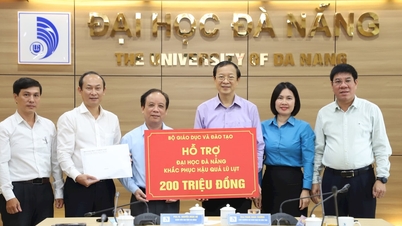
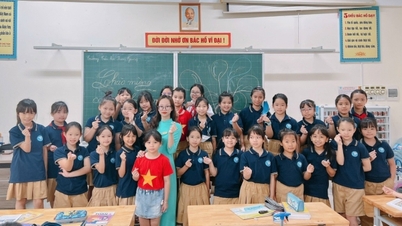




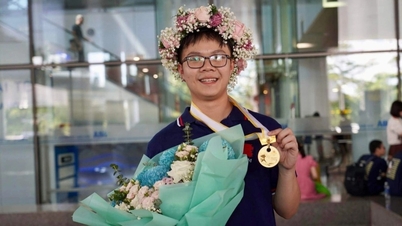

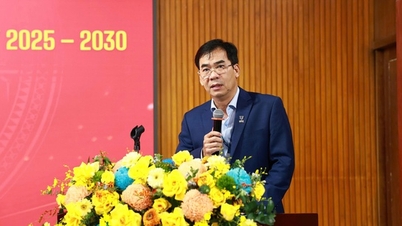

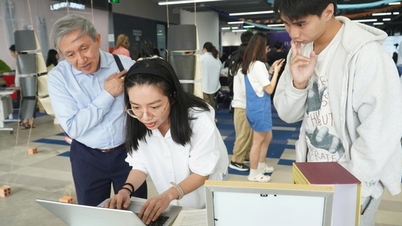








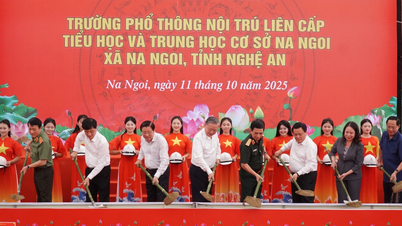
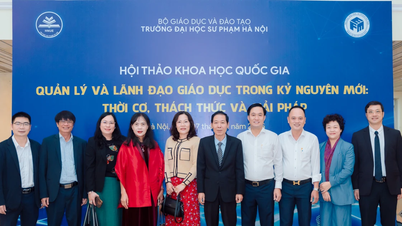







![[Video] Hue Monuments reopen to welcome visitors](https://vphoto.vietnam.vn/thumb/402x226/vietnam/resource/IMAGE/2025/11/05/1762301089171_dung01-05-43-09still013-jpg.webp)


















































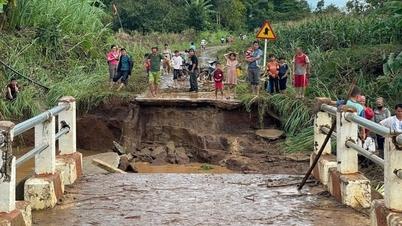



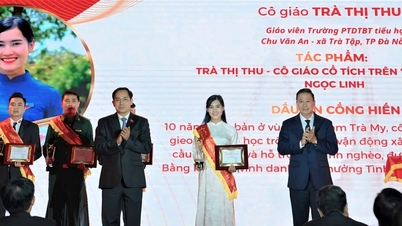













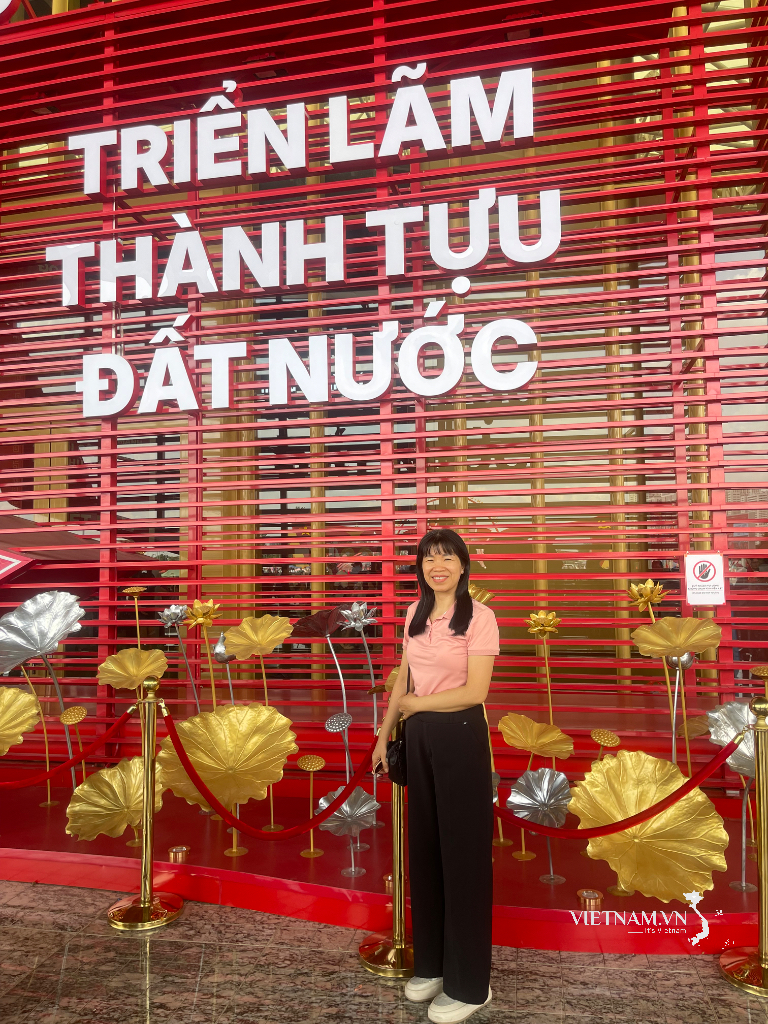

Comment (0)